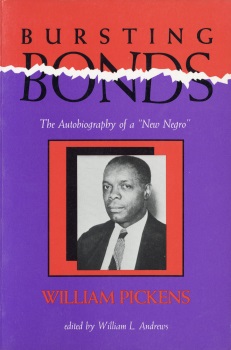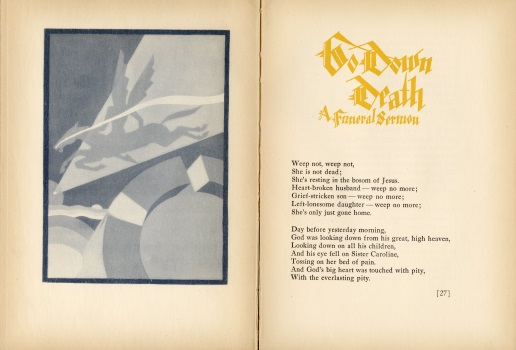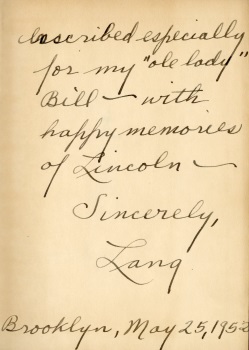William Pickens III recently made a special gift that included significant books of African American history, literature, and works on civil rights and black life in America. Many of the books were passed down to Bill Pickens by his father and grandfather and include inscriptions by writers such as James Weldon Johnson, Langston Hughes, and others. We are delighted to add these important volumes to our Rare Book collection.
A 1958 graduate of UVM, where he served a term as Student Government president, Bill Pickens was an executive with Marine Midland Bank and Philip Morris before starting his own consulting firm in 1979. He has also served on numerous non-profit boards and was founding chair of the Paul Robeson Foundation. His book collection reflects a lifelong dedication to civil rights and the documentation of black culture.

William Pickens I was a major figure in the civil rights movement before the climactic era of the 1950s and 60s. A 1904 Phi Beta Kappa graduate of Yale University, Pickens first published the autobiographical Bursting Bonds in 1923. Indiana University Press published a new edition of Bursting Bonds: The Autobiography of a “New Negro” in 1991.

Folk traditions of African Americans have been documented by many writers, including James Weldon Johnson, who published numerous collections of poetry and spirituals in the first half of the twentieth century. This copy of God’s Trombones: Seven Negro Sermons in Verse (New York: The Viking Press, 1927), was inscribed by Johnson to Bill Pickens’s grandfather.

The Pickens family was close to many luminaries of the Harlem Renaissance. Langston Hughes was a close associate of William Pickens II, Bill’s father; he inscribed a copy of Simple Speaks His Mind to the elder Pickens in 1952.

The Pickens collection includes works by and about great African American thinkers and activists such as W.E.B. DuBois. Henry Lee Moon, author and editor of The Crisis, inscribed The Emerging Thought of W.E. B. DuBois to Bill Pickens in 1973, “with best wishes for a happy future for which your forebears worked so hard.”
Contributed by Jeffrey Marshall,
Director, Special Collections
